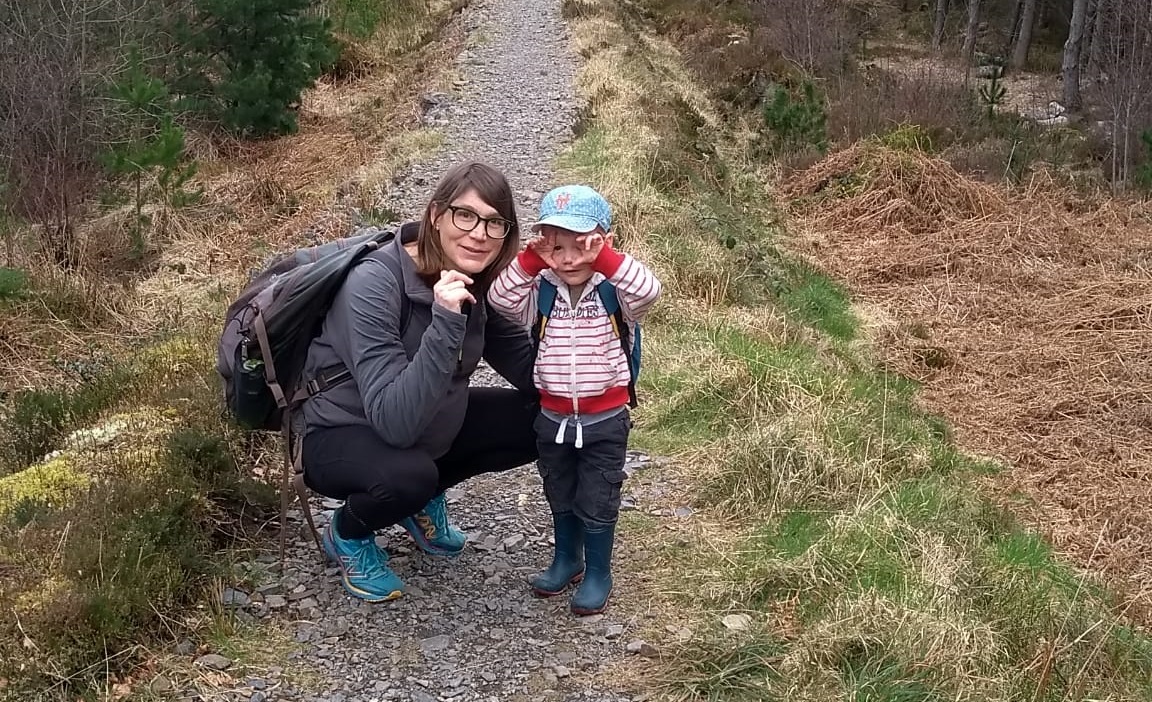Marleen has suffered from migraine for more than 20 years, and describes what it’s like to live with the condition.
I started suffering migraine headaches during my PhD, in my early twenties. I've always been a high achiever, working hard for my studies and engaging in competitive sports, so this was a real set-back.
Surprisingly, it took about a full year to get a diagnosis. E.g. in the beginning I got a lot of physiotherapy for 'neck pain', which only made it worse. By the time the diagnosis came around the 'headaches' had become daily and very debilitating. I had to severely cut down the intensity of the sports (swimming, running and cycling) that I was doing (each of the sports has its migraine trigger: lack of oxygen, high impact and wind respectively), which was very disheartening for me as I have always loved sport and it's been my main stress outlet/safe space. On top of the relentless severe pain, not being able to do what you love doing and not being able to achieve your goals, is very hard to deal with, especially when you are quite young and driven.
The search for a treatment plan
After diagnosis, the search for a treatment plan was on. I tried all the medical treatments that were available at the time, from valproic acid, topiramate, antidepressants, alpha blockers, beta blockers, to botox etc, before getting pregabalin (a calcium channel blocker) prescribed. After seven years of struggling immensely, this was a hit that got me through the subsequent ten years of my life.
All the drugs that I tried had side effects that had a significant impact on my life (weight gain, weight loss, inability to concentrate, confusion, loss of balance, depression, insomnia...). I was very determined to have a career in academia, I believe things would have been much easier if I hadn't been on this medical rollercoaster, having to deal with the unpredictability of migraine attacks, daily pain and the loss of identity you feel when your body is unreliable and out of control. It wasn't fun and at times I felt very lost and down.
I am still grateful to the neurologist who prescribed me the drug that did work and who didn't tell me to dial down my intense lifestyle and stop doing sports. Being told to lead a life that you don't want to lead is tough.
Having a headache makes me a person I don’t like
With age the migraines have gotten better. For a long time I felt like a failure as I could only function and survive when on medication, and because my body wasn't doing what it was supposed to be doing. I never thought I could live without taking daily pills.
I am now in my forties. I am off medication and rarely take the emergency triptans that are often prescribed to curtail migraine attacks.
I have got two lovely sons and a successful career that I worked hard for. I still can't drink coffee or alcohol, I feel when a storm is coming and always have to be wary of changing habits, making sure I eat and drink enough, but these are small sacrifices for leading a life without constant pain. When I do get a headache, I am very grumpy and short-tempered, I can't think clearly, just want to sleep and struggle to keep up at work. Having a headache makes me a different person, a person I resent and don't like.
Migraines are real
I feel sad for my younger self who lost a great deal of time trying to cope with this.
The fact that there is still such a lack of awareness and understanding of this condition contributes massively to the isolation people feel when suffering from migraines. If people had been more accepting and believing the reality of the illness that I was struggling so hard with, I wouldn't have felt so alone, failing and flailing to try to function in society. Migraines are real. Not thinking people credible when they say they are in excruciating pain is something that should belong to the past and discredits them immensely.
Funding vital research in migraine
As is evident from Marleen’s story, migraine is a complex and disabling disorder with a variety of symptoms.
We want to improve the lives of those affected by migraine and other headache disorders by funding research that advances understanding of how and why these disorders develop, and how to diagnose and treat them.
In 2024 we awarded funding to Dr Phil Holland at King’s College London for new research that targets the underlying cause of the earliest symptoms of migraine, including extreme fatigue. By understanding the early brain changes, the team hopes to develop treatments that can actually stop the migraine in its tracks, rather than simply masking the pain. Read more about this important research.
In common with all our research, Dr Holland’s work is funded through the generosity of our supporters. Marleen herself raised more than £1,400 by taking part in the Virtual London Marathon in 2020. Find out how you could support our work to raise vital funds for brain research.
Our website provides more information on the specific condition/s related to this story:

